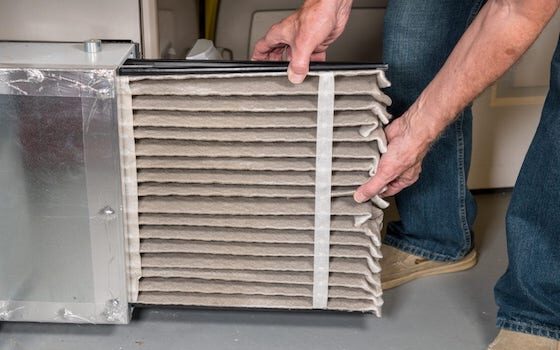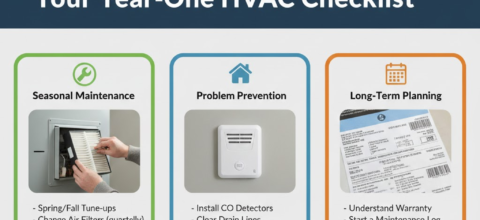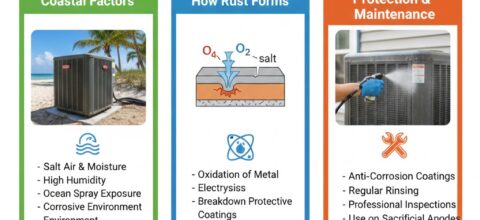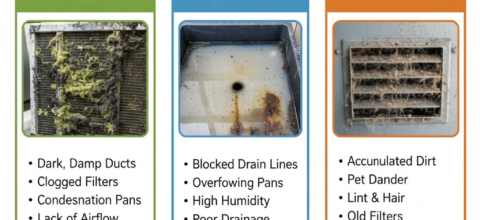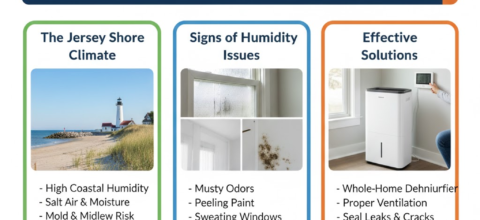How Often Should You Change Your Air Filter?
The HVAC system requires regular maintenance and, if needed, the replacement of some details. For example, do you know how frequently you should change your air filter? Some people can’t even answer the question of why you have to change it. This article exists to help you understand when and why you’ll have to replace your air filter.
The question “why”
Because the air filter gets dirty, all the dust, dirt, mold, particles of your hair and dry skin, and your pet’s fur – all this gets stuck into the filter. If you don’t change it from time to time this will get into your lungs. But that’s not the single problem:
- if the HVAC filter gets clogged, it can’t work the same way, because it can’t properly circulate the air anymore: you’ll be freezing in winter and dying from heat in the summer. This will require HVAC to work double its power and the result? High energy bills for poor work;
- bad odors and allergies: the HVAC system is a great place for mold and dust mites to grow their colonies. This can cause severe allergies or asthma. Also, have you noticed that no matter how hard you swept those floors or dusted the rooms, the smell of your pets stays? This also can be the fault of a clogged air filter;
- the HVAC breakdown – if you never change your filter, the system will start working poorly. After that comes the entire shutdown of the HVAC system because it can’t circulate the air anymore. The HVAC repair or replacement costs much more than the air filter change.
After covering the issue of an air filter replacement you can also purchase an air purifier for your home to better the quality of your home’s air. An air purifier can catch some of the remaining dust and pollen particles left. It’s usually a small device that you put on a shelf or any other surface. The range of air purifiers is usually restricted up to one room – you put it in your bedroom, it cleans the bedroom’s air only. An air purifier is good for removing the symptoms of dust allergies, but don’t expect a miracle if you haven’t changed the air filter yet.
The question “when”
This usually depends on the HVAC type, your lifestyle, and the area you live in. If you live in a low-polluted area, with no pets or allergies, it’s recommended to change your air filter once a year. If you live in a suburban home with no pets – change it every three months; one pet – every two months. But if you have a home in New York or another similarly highly air-polluted city, have a lot of furry pets, and are allergic to pollen (or other stuff), you should probably change your air filter once a month. The exception to this rule is children. Do you have them? Then, despite other conditions, it’s recommended to change your air filter every two months.
Also, you should frequently check your air filter every month. If you can see some dirt or dust build-ups up there, it’s time to change it no matter the schedule.
How do you change your air filter?
It’s quite simple, especially if you’ve done it before. If you don’t, we’re pretty sure you can handle it.
- Turn off your unit or the breaker and remove the old filter. If you already know the size of your filter, you should have already bought the right one. If you don’t look – at the old filter sides. Usually, the size is printed on those parts. If there are none – measure the old filter’s length, width, and depth and buy a new one based on this information. Or just bring it to the shop with you and ask for a similar one.
- Sometimes, to remove an old filter you’ll have to get a screwdriver for screw removal. Because if the air filter is located in the system’s air handler, it might have a protective cover.
- Now you can insert a new filter. It usually has arrows printed on it to point out which side should be facing the outside.
- Slide the new filter into place, secure it, if needed, and turn on the unit. Double-check if everything is working properly and you didn’t miss anything.
Have you changed the old air vent filter but the situation hasn’t improved? Maybe you’ll have to call a specialist to help you figure it out. Amazon Air Duct Cleaning is always ready to help. We will determine what part of the HVAC is malfunctioning, change or repair the system and provide you with more information on the HVAC system maintenance.
Contact us now: 800-482-8224 to schedule an appointment.

